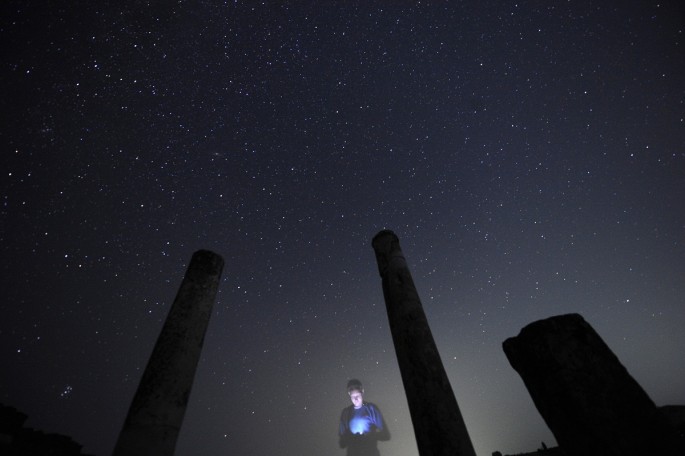Mark your calendars! The month of July will host a meteor shower, Delta Aquarid. Sky gazers will be able to enjoy a spectacular sight when the shooting star event reaches its peak this month. Also, NASA's Juno is scheduled to arrive at Jupiter on the Fourth of July. Here is a brief guide to major sky events occurring in this July.
New Moon: According to Seasky.org, the New Moon will rise on July 4, Monday. The phenomena will reach its peak at 11:01 UTC. At this time of the month, the moon remains invisible and sky remains dark providing an opportunity to observe other celestial objects.
Full Moon: The Full Moon emerges on July 19, Tuesday. During the full moon, the moon is the brightest and it is located opposite Earth as the Sun. The phenomena reaches its peak at 22:57 UTC. The July Full Moon is also known as Full Buck Moon, Full Thunder Moon and the Full Hay Moon.
Juno's Jupiter arrival: NASA's spacecraft Juno is scheduled to arrive at Jupiter on July 4. After five-year journey, Juno enters the polar orbit around Jupiter, the largest planet of our solar system. Juno will then study Jupiter and its atmosphere until October 2017. This happens to be the year's biggest space event.
When Juno approaches Jupiter, it will attempt to get into the planet's orbit with the help of its gravitational pull. According to BBC, the 35-minute orbit insertion burn will begin at 3:18 GMT. If Juno gains entry, it will reveal the secrets of the largest plante in the solar system, which is also referred to as a gas giant.
"Everything about Jupiter is extreme; it's a planet on steroids. Everything about it is 'the most.' So, it has the harshest radiation of any planetary environment in the entire Solar System; it has the strongest magnetic field; it's spinning around incredibly fast," the principal investigator Scott Bolton from the Southwest Research Institute in Texas told BBC News.
"We have to deal with this environment, and the spacecraft is literally an armoured tank."
Delta Aquarid Meteor Shower: The Delta Aquarid peaks on July 28 and 29. It happens to be an average shooting star event that remains active from July 12 to Aug. 23. The best time to witness the shooting star event is night of July 28 and early morning of July 29.
The meteor shower originates from debris of comet 96P Machholz and its radiant appears to lie in the constellation Aquarius close to constellation's brightest stars, Delta Aquarii. It will be mostly visible in Southern Hemisphere, hence it is called Southern Delta Aquarid.
Star gazers must note that no special equipment is required to witness the shooting star event. However, it is advised to be observed from a dark location away from the city lights.



























